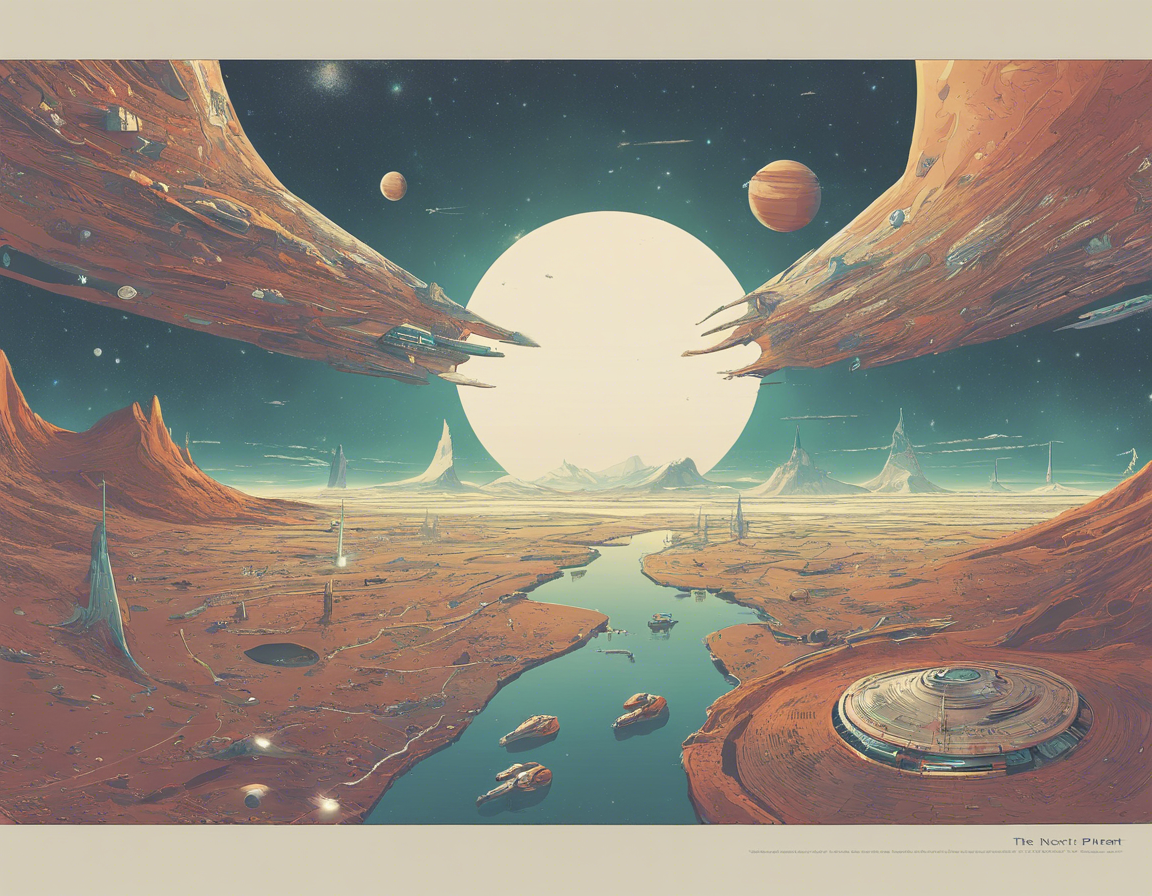Introduction
The exploration of space has always captivated human imagination. From the first moon landing to the ongoing missions to Mars, the fascination with the uncharted territories of the universe continues to grow. As we look beyond our own planet, the idea of venturing to the next planet becomes an exciting prospect. In this article, we will delve into the possibilities and challenges of exploring the next planet, and how it could shape our future in space.
The Next Planet: Mars
Mars, often referred to as the “Red Planet,” has long been a focal point of human space exploration. With its similarities to Earth and potential to support life, Mars has captured the interest of scientists and space agencies around the world. Efforts to send missions to Mars have been ongoing for decades, with notable successes such as the Mars rovers and the recent Perseverance rover mission.
Key Challenges
-
Atmosphere: Mars has a thin atmosphere that does not provide enough protection from harmful solar radiation. Any human mission to Mars would need to address this challenge by creating suitable habitats or developing advanced shielding technologies.
-
Resources: The lack of readily available resources on Mars, such as water and oxygen, poses a significant challenge for sustaining human life on the planet. Future missions will need to focus on resource utilization and in-situ resource utilization (ISRU) to overcome this hurdle.
-
Gravity: Mars has a much lower gravity than Earth, which can have adverse effects on the human body over extended periods. Understanding the long-term effects of reduced gravity on human health is crucial for planning future missions to Mars.
Technological Advances
Advancements in technology have played a crucial role in paving the way for future missions to the next planet. From rocket propulsion to life support systems, continuous research and development are driving innovation in the field of space exploration. The use of autonomous and AI technologies is also revolutionizing how we operate in space, enabling more efficient and effective missions.
The Future of Space Exploration
As we look towards the next planet and beyond, the future of space exploration holds immense promise. From establishing sustainable habitats on other planets to mining asteroids for valuable resources, the possibilities are endless. Collaborative efforts between government agencies and private companies are pushing the boundaries of what we can achieve in space.
Frequently Asked Questions (FAQs)
- Will we ever be able to live on another planet?
-
Living on another planet is a possibility that scientists are actively working towards. Establishing sustainable habitats and developing technologies for resource utilization are key steps towards making this a reality.
-
How will we overcome the challenges of space travel, such as radiation exposure?
-
Scientists are researching ways to mitigate the effects of radiation exposure during space travel, including developing advanced shielding materials and designing spacecraft with enhanced protection measures.
-
What role will AI and autonomous technologies play in future space missions?
-
AI and autonomous technologies are expected to revolutionize space exploration by enabling faster decision-making, optimizing mission operations, and improving overall efficiency in space.
-
How do we ensure the sustainability of space exploration for future generations?
-
Sustainability in space exploration involves responsible use of resources, minimizing environmental impact, and prioritizing long-term viability of missions. Collaborative efforts and international guidelines are crucial in achieving sustainable exploration.
-
What are the potential benefits of mining asteroids in space?
- Mining asteroids for resources such as water, metals, and rare minerals could provide valuable raw materials for future space missions, reduce reliance on Earth’s finite resources, and open up new economic opportunities in space commerce.
Conclusion
The quest to explore the next planet represents a bold step towards a future where humans could potentially inhabit other celestial bodies. Through advancements in technology, collaborative efforts, and a shared vision for space exploration, we are inching closer towards realizing the dream of venturing beyond our own planet. As we continue to push the boundaries of exploration, the possibilities of what lies ahead in space are both exciting and limitless.
